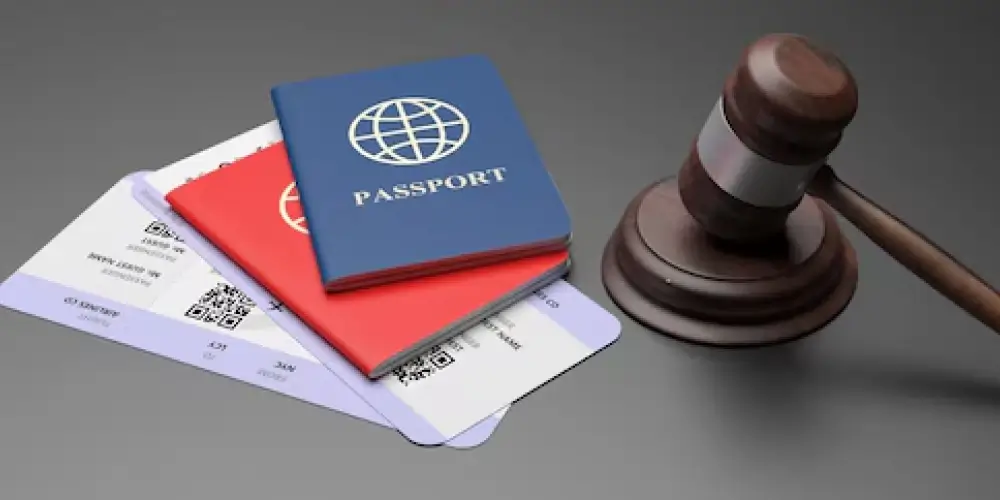

Introduction to Visas and Immigration
15/08/2024 Steven Adams 2498
Visas are very essential in controlling international movement and migration. They are legal documents that are given out by countries which give a legal right for entry, residence or dwelling for a certain purpose. Thus, studying the types and peculiarities of visas is crucial for comprehending the general specifics of immigration legislation and regulations.
Types of Visas
1. Non-Immigrant Visas
Non-immigrant visas are issued for temporary stays in a country. They include:
-
Tourist Visas: Allow individuals to visit a country for leisure or recreational purposes for a limited duration.
-
Student Visas (F-1, J-1): Permit foreign students to study at accredited educational institutions.
-
Work Visas (H-1B, L-1): Authorize employment in the host country for a specific job or employer.
Each non-immigrant visa category has specific eligibility criteria, limitations on duration of stay, and conditions under which employment or study is permitted. For instance, H-1B visas in the United States are popular among skilled workers and require sponsorship by a U.S. employer.
2. Immigrant Visas
Immigrant visas, also known as permanent residency visas or green cards, allow individuals to live and work permanently in the host country. Key categories include:
-
Family-Based Immigration: Sponsored by a close family member who is a citizen or lawful permanent resident of the host country.
-
Employment-Based Immigration: Granted to individuals with specific job offers or extraordinary abilities in their field.
-
Diversity Visas (DV Lottery): Offered through a lottery system to promote diversity among immigrants from countries with historically low rates of immigration to the host country.
Each immigrant visa category involves a rigorous application process, often requiring extensive documentation, background checks, and sometimes interviews to determine eligibility.
Impact on the Immigration Process
1. Legal and Procedural Requirements
Different types of visas define the legal status through which immigrants can live and/or work in the host country. Many of the visas that are normally offered have some rigorous staying conditions of work, study, and residence that the applicant is supposed to stick to and meet to the letter to avoid legal repercussions such as deportation or withdrawal of the visa granted. On the other hand, there are immigrant visas that enable one to gain a permanent residency and in many instances citizenship, thus they provide more favorable conditions than the temporary ones.
2. Economic and Social Implications
These different visa types have general criteria that determine who gets them and this impacts the saving of a country’s labor market and its economy. For instance, work visas may be granted by the countries to address shortages of human capital in industries or for the purpose of promoting immigration for capital through the schemes of the immigrant investment programs. On a social level, family-based immigration positively influences the population diversification and reunification of families which in return strengthens the cultural and social fabric of society.
3. Policy and Political Considerations
Many visa policies remain in a package with geopolitical, security, and domestic political motives. This means that conditions in a visa may affect diplomatic relations between countries and cause changes in mobility. For instance, measures such as increased visa restrictions may work to eliminate issues such as a) unlawful immigration and put into check issues to do with security while easing measures such as relaxed visa policies may help to accommodate areas like b) promotion of tourism and economic development.
Challenges and Considerations
1. Processing Times and Backlogs
Visa processing times vary widely based on visa type, country of origin, and administrative factors. Delays and backlogs in processing can disrupt travel plans, job placements, and family reunification efforts, underscoring the need for efficient immigration policies and administrative capacity.
2. Legal Assistance and Advocacy
Navigating the visa application process can be daunting, especially for individuals unfamiliar with immigration law and procedures. Legal assistance from immigration lawyers or accredited representatives can provide invaluable support in understanding eligibility criteria, compiling required documentation, and navigating potential challenges or appeals.
The effect of various types of visa on its procedures cannot be underestimated and is exceptional. Going through temporary sojourn as tourists and business people to more structural roles of changing people’s live’s, visas play roles in the economy and social frameworks. The basic knowledge of visa types, legal procedures, and policy shifts acts as the fundamental input for the potential immigrants and policymakers since the fair, efficient, and inclusive immigration system is a shared goal.
This blog has aimed to provide a comprehensive overview of how different types of visas impact the immigration process, highlighting their legal, economic, and social dimensions. By exploring these facets, individuals can make informed decisions and advocate for policies that promote equitable access to international mobility and opportunities
Recent Blogs
Building a Diversified Inves ...
26/01/2025 1834
Integrating AI and Machine L ...
24/01/2025 1394
Health Insurance Regulations ...
22/01/2025 2453
Recognizing Signs of Mental ...
20/01/2025 2474
Understanding Employers' Leg ...
18/01/2025 1412
Trending Blogs
Interest Rates: How They Aff ...
20/06/2024 12713
Client Retention: Building S ...
20/06/2024 10761
Introduction to Common Law: ...
21/06/2024 9828
Common Types of Criminal Charges
02/03/2024 8997
Corporate Finance Law: Raisi ...
04/06/2024 8728











